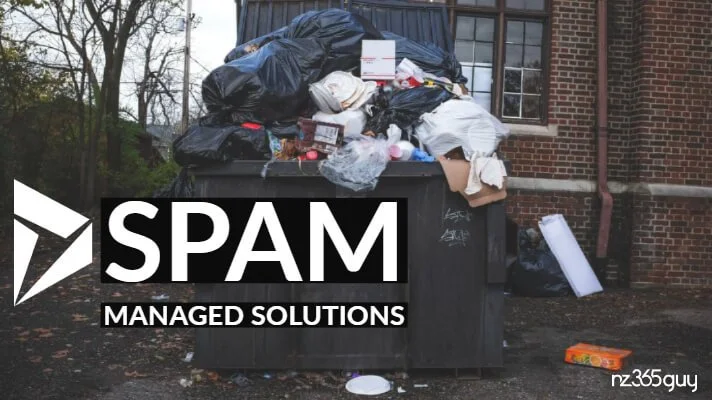SPAM Managed Solutions – Why Deploying Dynamics 365 is like Buying a New Computer
First, let me start by saying sorry for this post. It has been boiling for a while, and everyone I speak to does not seem to have the authority to address it in Microsoft.
Before Microsoft introduced the Surface line of computers, I was a massive fan of HP computers. I did not purchase Lenovo or Dell; HP was my laptop brand of choice, but I know that what I am about to say also applies to these brands.
The first thing I would do when purchasing a new laptop was “blow it away” meaning I would jump on, check the BIOS, set it up how I wanted it to run, format the hard drive and do a fresh install of Microsoft Windows. Why did I go to this trouble?
The reason was I did not want all their SPAM propriety applications installed and bloating my computer, taking up RAM, consuming CPU and occupying disk space.
They thought that by installing that junk, they would provide a Trojan horse into my mind to get me to stumble upon these propriety applications and use them. No, thank you. Hence the first thing I did was a clean house, or computer, in this situation.
A fresh install of Microsoft Windows, and only the applications I chose, I was good to go.
Now let’s look at what a first run deployment of Dynamics 365 for Sales looks like. I will set up a clean deployment and see what it looks like before I start carrying out any configuration or customization. A clean deployment as of August 7, 2019.
Once I had completed the setup, I look at what was installed for Dynamics 365 for Sales as I have chosen above.
What I found was more than I asked for. Other Dynamics applications had been introduced into my environment, even though I ONLY wanted SALES.
All I wanted was Sales Hub but I got at least seven other apps thrown in for good measure. Don’t get me started on how shocking this is from a usability perspective. It makes the environment way more complicated than it needs to be. People like using sophisticated software when it looks and feels simple with little distraction.
This image is my first run experience.
Let’s go a little deeper by opening Sales Hub and look at an Account and Contact record from the sample data that was installed.
Account Record
Contact Record
I could show many more examples, but I think you get the point – in this case, Junk Apps (SPAM) that I did not ask for in my solution.
I can see straight away that there is stuff in here that are not part of Dynamic 365 for Sales but some other apps that have been installed by Microsoft deployment scripts. I assume that Microsoft Product Owners that want me to stumble upon their Apps and go “wow, how did you know that was just what I needed”- Field Service, Customer Service and Project Service.
If you look at the first graphic above when I deployed the environment, all three apps are not selected, but I got them anyway! I call them SPAM apps.
Here is the list of apps that were installed by default:
Page 1
Page 2
Note: I did not highlight the additional apps that are showing there but are listed as NotConfigured.
Now let’s look at the details. How many Managed Solutions were installed into my environment?
A total of 32 Managed Solutions. When I look at this list of solutions, how many are needed for Dynamics 365 for Sales?
Dynamics 365 Sales Application
Common Data Services Default Solution
PowerApps Checker
If I am only working with Dynamics 365 for Sales and not building any other apps, I am not sure I need the last two in this list.
As you can see this is very frustrating and I wish I had the option to format the HDD and do a fresh install but wait that was a clean install…
I decided to go through and uninstall each of the solutions that were not needed. Does anyone want to guess how many hours/days that took? I ran into dependency issues with solutions preventing them from being uninstalled even when the dependency would not affect Dynamics 365 for Sales.
Think of the waste of resources/time it takes to remove these.
I asked the community for a “Tool” to automatically remove all the solutions that were not needed.
No, luck there.
I wish someone with the correct level of authority within Microsoft Business Applications would recognize that this counterintuitive experience is hurting the Dynamics 365 and Power Platform brands and stop jamming unrequested, bloated SPAM applications into the environment.
And keep in mind that you pay for all your storage these days. So do all these other Managed Solutions now contribute to your storage consumption and cost that kicked in April 2019?








